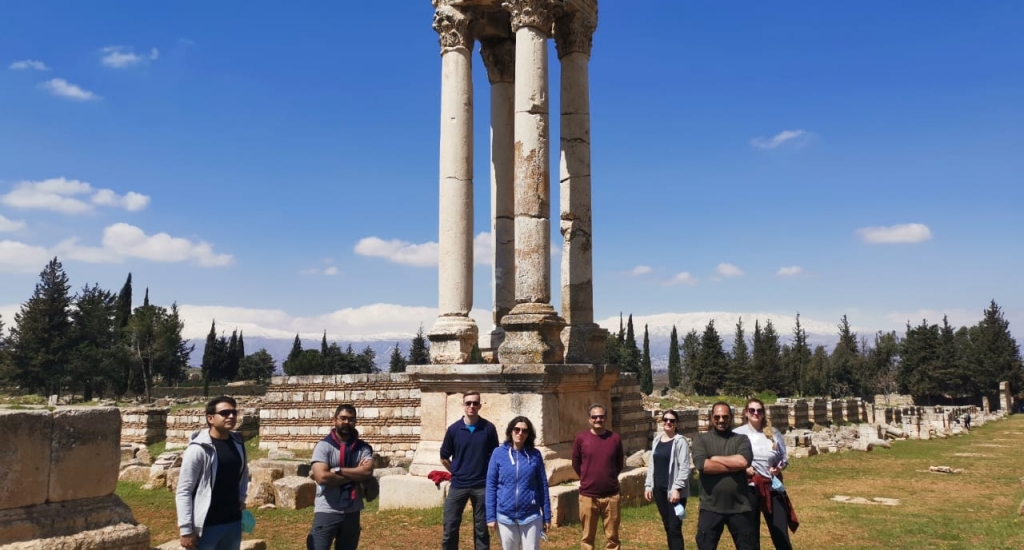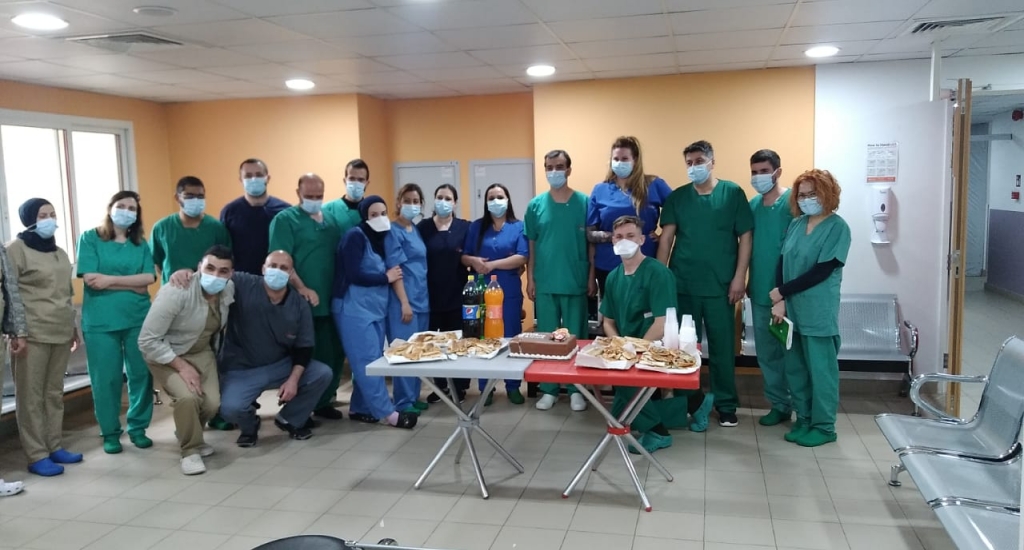Giving off good vibes is very important
Stijn Poosen, 28, is an ICU nurse. Two months ago, he returned from his second project with MSF, working in Lebanon. We asked him a few questions about his experiences.
Where did you hear about Médecins Sans Frontières as a potential employer?
MSF is an organisation that you hear a lot of good things about. That was definitely one of the first reasons why I tried to find out more about MSF. The decisive factor for me was the positive stories I heard from a very good friend who has worked on a number of projects with MSF.
Before I started with MSF, I had a little bit of experience of working overseas. I have done international work placements and I have also been to the DRC for a very brief project through my hospital. I’ve also done a three-month course on tropical medicine at the ITM in Antwerp.
What does a typical day look like on the project in Lebanon?
That’s a funny question... there’s no such thing as a typical day! You know that you’ll be faced every day with high, lows, problems, challenges, and so on, but what will actually happen on a given day is always a surprise. That can be pleasant, or frustrating, but mainly... different to what you’re used to and therefore a learning experience.
How does your experience with Médecins Sans Frontières differ from your previous work experience?
I have my normal job here in Belgium. That’s very exciting too. But every day is strictly organised. I know when I’m going to eat lunch, when I will treat patients etc. Apart from during COVID-19, my workload is moderate. Working on the MSF project, my days are much longer - almost twice as long.
What’s also important is that in intensive care with MSF you have plenty of medical materials such as respirators or infusion pumps, but other materials like arterial catheters for monitoring blood pressure are very scarce. That would be unimaginable at an intensive care unit in Belgium. You have to find creative solutions along with your local colleagues. You learn from your local colleagues, and they learn from you. You’re both at the patient’s bedside with the aim of providing the best possible care by working together.
You learn from your local colleagues, and they learn from you. You’re both at the patient’s bedside with the aim of providing the best possible care by working together.
Did you ever have doubts about working in the field?
The first project is always tense. Of course, you are a little scared. You ask yourself a lot of questions. Where will I end up? Will I get on with my colleagues? Who will I spend my free time with? Will there be people my age? There’s always a bit of stress, but these challenges are what makes the work enjoyable.
Working in the field can be disappointing. My first project, a COVID-19-project in Brazil, was not a positive experience. Firstly, it was at the start of a new, unfamiliar pandemic. I also had difficulties with the local language, Portuguese. Because I didn’t speak Portuguese, working with local colleagues was often a little strained. When I returned to Belgium, I did hesitate about going back into the field. But I did go again and this time it was a success! Things don’t always go as expected, but you have to dust yourself off and try again.
Is there a patient or a particular incident that has really stayed with you?
On every project there is a patient that you’ll always remember. I remember it very well in Brazil: there was a couple in our ICU, a woman aged 80 and a man aged 85, both badly affected by COVID-19. As they were among the few patients who could speak English, it was easier for me to provide personal care. The two patients were placed in different ICUs so that they wouldn’t see each other suffer - to prevent any form of potential stress or sorrow. Despite their condition, they asked us to pass on their messages of love to each other every day. They were both in a very bad way, so the messages were a way to comfort each other and keep their spirits up.
There’s always a bit of stress, but these challenges are what makes the work enjoyable.
What is one of the most important qualities or skills you need to work as a nurse with Médecins Sans Frontières?
I think it’s very important that you have a positive disposition and give off a positive vibe to others.
Do you have any tips for nurses who want to go and work in the field? What would you say to a nurse who wants to apply for a job with Médecins Sans Frontières?
I would recommend it to anyone. Even though combining your private life with working for MSF is not always straightforward. You have to be aware that this can sometimes cause difficulties, but there are a lot of people who can make it work – I certainly did. Staying in the field for months or even a year also means that you won’t see your family or friends in that time. It’s possible to keep in touch with them but it’s not the same. You’ll miss parties, birthdays, births, weddings etc.
What is the hardest thing when you get back from a local project?
You have to get used to being at home again. Coming into daily contact with problems that you would only read about in the paper back in Belgium, it gets to you personally. When you come home, others might not take these problems particularly seriously, as Belgium is simply a different environment and a different context to what we see in the field. For many people it’s a case of ‘out of sight, out of mind’. It’s easy to close your eyes and forget those problems exist. But if you have left friends and a life behind in those places, it affects you differently.
Did you have a motto while working in the field?
Hakuna Matata!
Do you know where you’ll be going next yet?
No, not yet. When I got home, MSF suggested some projects in Yemen, Afghanistan and Gaza. I have now been back for two months, and I have let them know I would be ready for another project in September.



